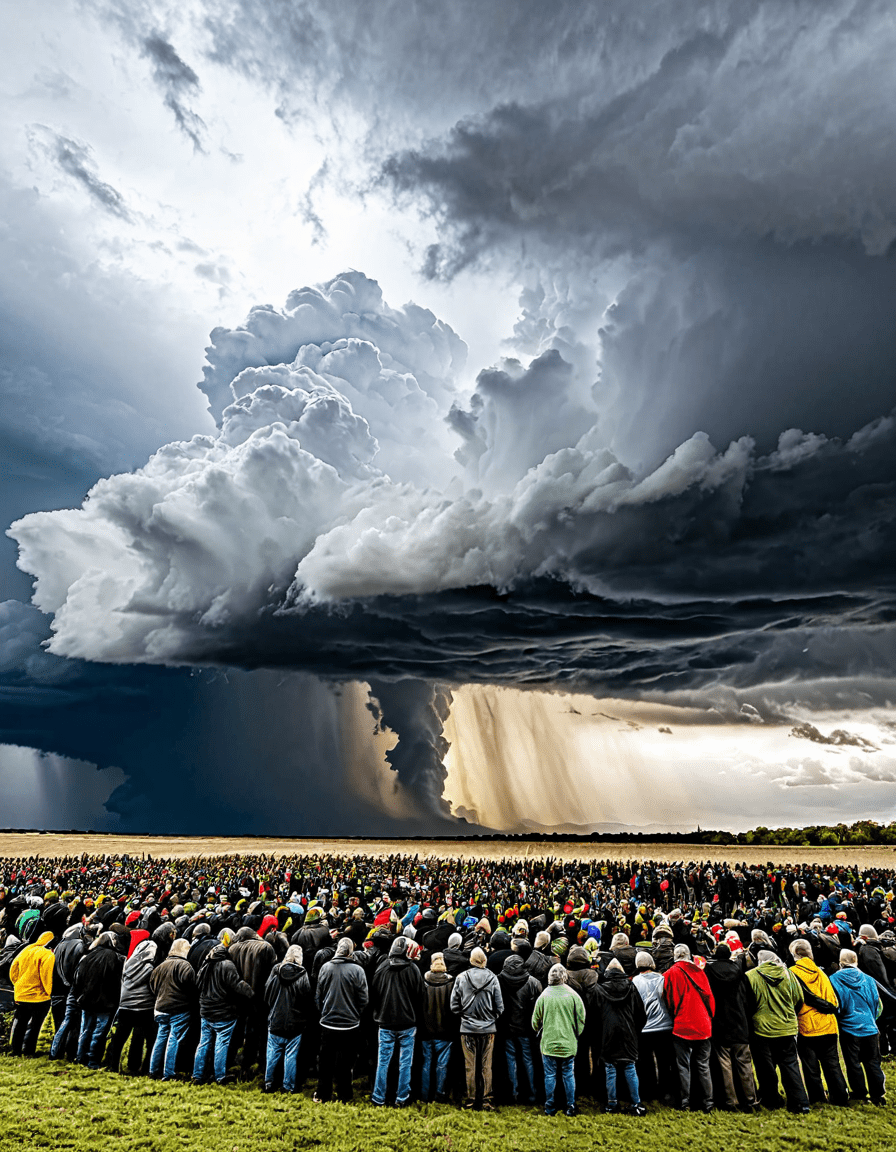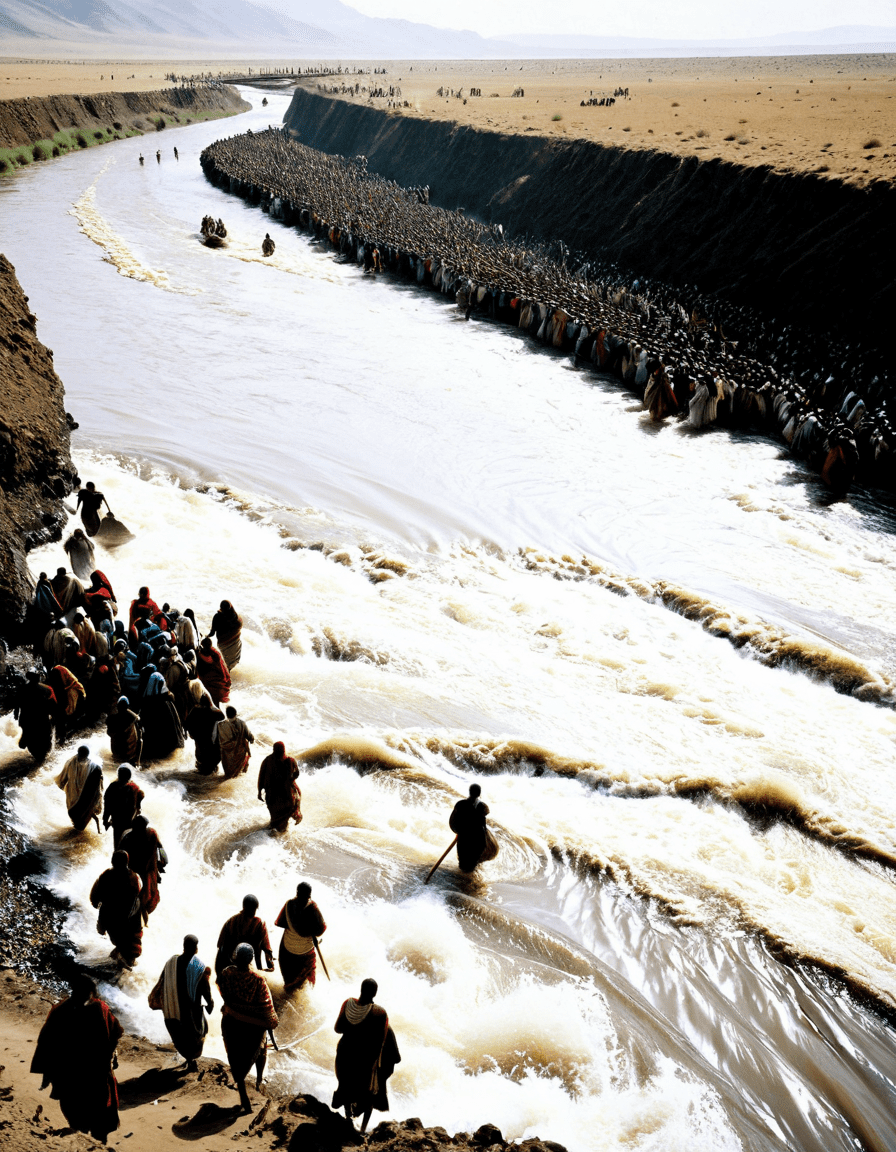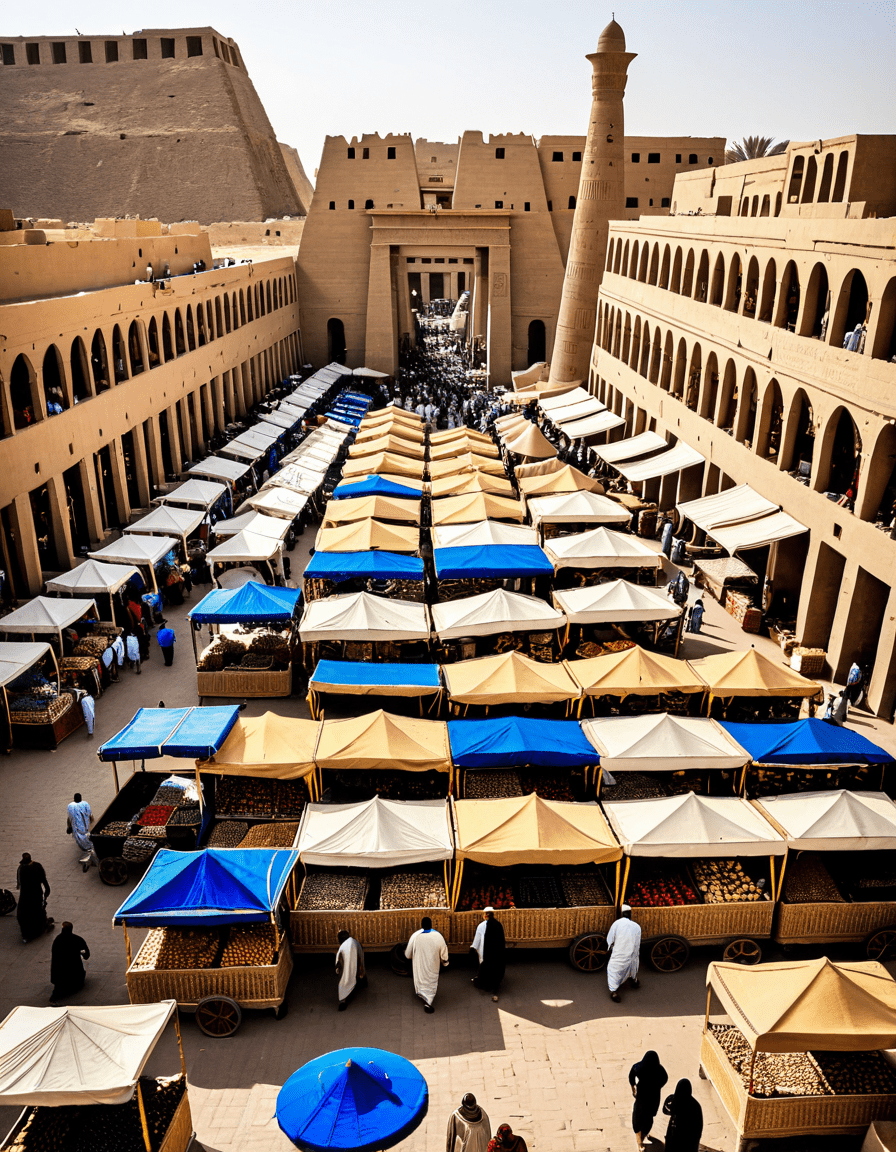
Understanding the Exodus: A Historical Perspective
The term exodus isn’t just a word; it represents profound journeys of countless individuals throughout history. Exoduses reflect the very essence of survival and a relentless pursuit for better lives. Think about the iconic narrative of the Israelites fleeing Egypt—it’s a vivid reminder of what people endure. But look around; this phenomenon isn’t just ancient history. Fast forward to 2026, and you can spot modern exoduses that mirror these experiences.
Take the Syrian refugee crisis, for instance. It shows us the grim reality of a war-torn nation displacing millions of innocent souls. Similarly, the waves of Central American migrants journeying toward the United States underscore the trials in search of safety and prosperity. Each of these modern exoduses shares an undeniable thread: they encapsulate themes of displacement, resilience, and that ever-persistent longing for a place to call home.
As we dive deeper into these stories, let’s remember that exoduses aren’t merely statistical data—they’re filled with emotions, aspirations, and the indomitable spirit of humanity. Understanding the landscape of past and present migrations ignites a spark of empathy, leading us to a collective responsibility to offer support and compassion. Let’s not kid ourselves; each story of exodus is a testament to the unwavering human spirit.

Top 7 Modern Exoduses That Shaped Our World
1. The Syrian Refugee Crisis (2011-Present)
Since 2011, Syria has been in chaos, and over 6.6 million people have left their homeland. They’ve fled to countries like Turkey, Lebanon, and Jordan, forever changing the demographic landscape of these regions. The sheer size of this exodus illustrates the gravity of conflicts, and it’s a wake-up call for us all.
2. The Venezuelan Migration Crisis (2015-Present)
The situation in Venezuela has spiraled downward, pushing more than 7 million citizens to seek refuge in neighboring countries such as Colombia. They’re fleeing economic ruin and political strife, facing challenges of xenophobia and the struggle to integrate into new societies. This migration showcases the dire human cost of a collapsing state.
3. Rohingya Exodus from Myanmar to Bangladesh (2017-Present)
The plight of the Rohingya, with approximately 1 million seeking asylum in Bangladesh, is heartbreaking. They’re escaping relentless persecution in Myanmar, highlighting a desperate need for global humanitarian support. Their story paints a grim picture of what many endure when fleeing for safety.
4. The Central American Caravan (2018-Present)
Countless individuals from Honduras, Guatemala, and El Salvador have banded together, forming caravans headed north. They seek refuge from violence and poverty, exemplifying the courage it takes to undertake such perilous journeys. These movements have ignited heated political debates in the United States, making it a trending topic the world over.
5. Ukrainian Displacement (2022-Present)
In light of the Russian invasion, Ukraine faces unprecedented levels of displacement, with over 8 million people forced from their homes. The European Union’s response has sparked discussions around asylum policies and international aid. This current exodus serves as a poignant reminder of the cost of war and the urgent need for compassion.
6. Climate-Induced Migration (21st Century)
Some communities are leaving their homes due to climate-related changes. Rising sea levels and harsh weather events aren’t just statistics—they’re a reality for those in low-lying areas, like the Pacific Islands. This silent exodus underscores a global dilemma that needs urgent attention from all of us.
7. The Movement of People in the Wake of COVID-19 (2020-Present)
The COVID-19 pandemic resulted in unexpected migrations, as many left urban settings for rural areas, seeking safer environments. This shift is still being analyzed, but the long-lasting effects are evident. We must adapt to these changes while supporting those impacted by this incredible exodus.
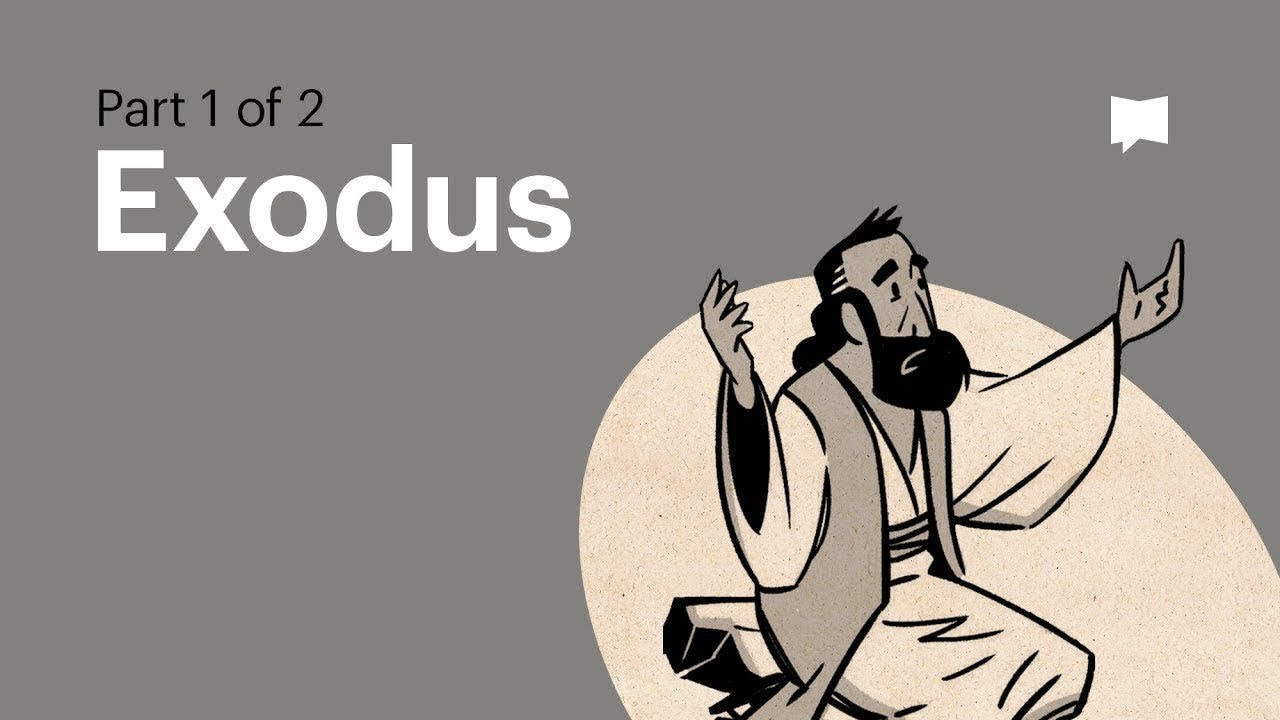
The Economic Impact of Mass Migrations
Mass migrations like these don’t happen in isolation—they ripple through economies. Host countries might feel the strain of welcoming newcomers, facing labor shortages or overcrowding. But here’s the kicker: initial costs can lead to innovative solutions and cultural growth in the long run.
For example, Colombia’s response to its Venezuelan neighbors illustrates the potential benefits. By integrating migrants into the workforce, they’re opening doors for economic development. Countries like Germany have shown that successful integration can lead to extraordinary contributions in innovation and job creation.
Moreover, migrants bring fresh perspectives that enrich host communities. The economic narrative must evolve from viewing exodus as a burden to embracing it as an opportunity. Integrating newcomers can create a win-win situation, making our societies more vibrant and inclusive.
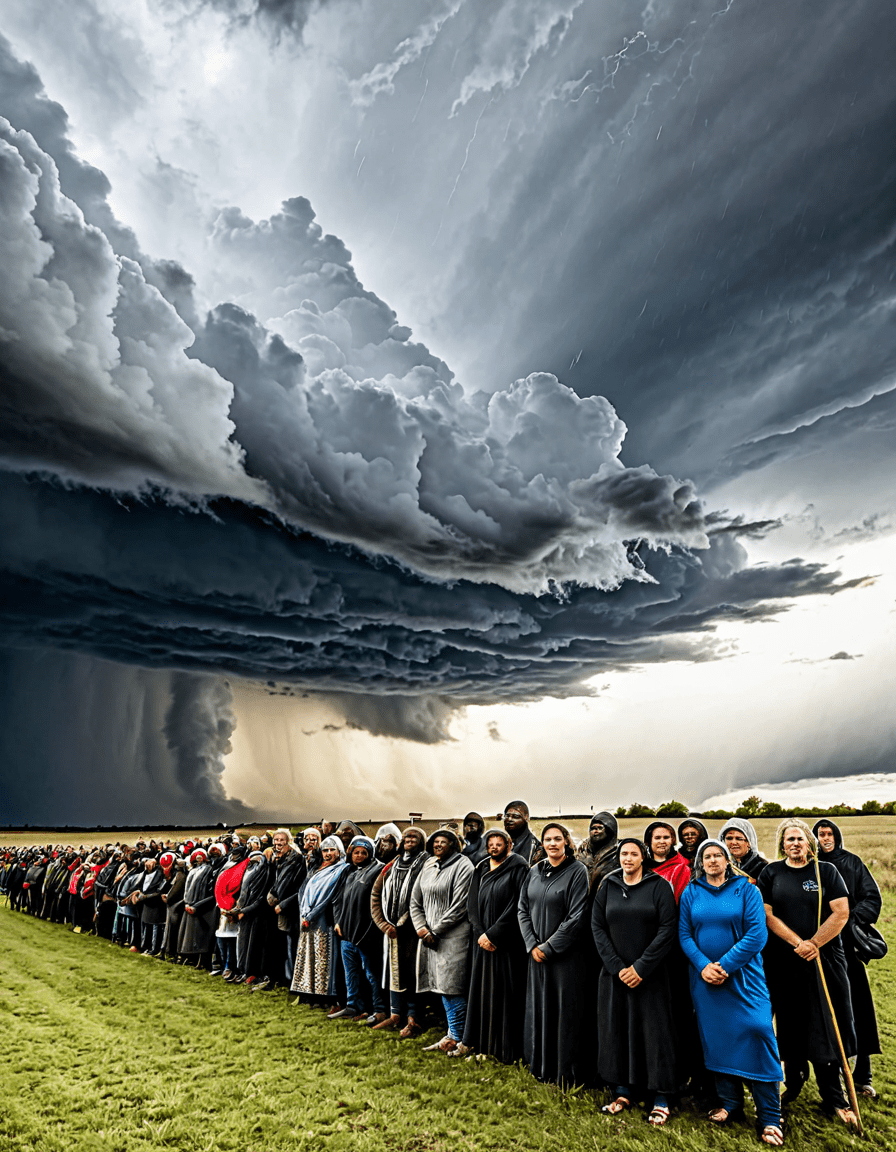
Cultural Resonance: The Stories Behind the Exodus
Behind every exodus, there are untold stories waiting to be shared. These narratives resonate deeply, revealing the heart of human experience—it’s about dreams, aspirations, and resilience against all odds. Documentaries, films, and oral histories allow us to peer into the lives of those affected.
For example, the film “For Sama,” follows a mother’s harrowing experience during the Syrian war. It presents a personal view of what many families endure, humanizing the statistics we often overlook. By embracing these stories, we foster a deeper understanding of the trials of displaced individuals, creating a foundation for empathetic societies.
It’s crucial to recognize that these narratives shape our collective consciousness. By listening and amplifying their voices, we pave the way for compassion, acceptance, and ultimately, unity. These stories are not just threads of individual experience, but the fabric of our shared humanity.

The Role of Technology in Modern Exodus
In this digital age, technology has revolutionized how these exoduses unfold. Social media platforms serve as lifelines, connecting migrants with those who can help. People are using apps, like Refugee Buddy, to find support networks across borders.
Immediate access to information can make a world of difference. These platforms empower individuals and foster connections that might not otherwise exist. They help translate the challenges of relocation into manageable solutions, impacting real lives.
Moreover, advancements in artificial intelligence and machine learning are enhancing our understanding of migration patterns. Organizations can utilize this data to respond more effectively to crises. Technology is reshaping the narrative around exodus, moving it from despair to hope.
Wrapping Up: A Collective Call for Humanity
The extraordinary journeys marked by exoduses echo a universal quest for safety, dignity, and a better life. As we navigate through 2026, it’s essential to stand together in solidarity, seeking meaningful solutions for those affected by forced migration. History continually reminds us of the power of compassion.
By embracing these narratives, we not only enrich our societies, but also shape a future steered by empathy. The stories of those who journey for hope are profound reminders of our humanity. Let’s carry this message forward, ensuring we cultivate a world where everyone can thrive, no matter who they are or where they come from.
In these times, it’s crucial that we respond to the call for humanity with open hearts and minds. Let’s make every effort to share the stories of exoduses that resonate with our collective resolve. Together, we can help transform hardship into hope—because when we unite as one, anything is possible.
Exodus: Fun Trivia and Interesting Facts
Remarkable Origins of the Exodus
The Exodus story is famous for its adventurous spirit, but did you know that it has inspired countless works in popular culture? Films like Raiders Of The Lost ark have drawn upon the themes of ancient journeys and heroic quests, reflecting humanity’s exuberance for tales of escape and triumph. It’s fascinating how this ancient narrative continues to resonate, showing up in everything from literature to video games like the Elder Scrolls skyrim game, where epic adventures unfold in rich, immersive landscapes. Who wouldn’t want to embark on an adventure that mixes history with thrilling storytelling?
The Journey’s Cultural Impact
Exodus isn’t just a historical account; its far-reaching influence extends into diverse cuisines. In fact, have you ever tried a dish from the House Of Pho? Just as the Israelites sought sustenance on their journey, cultures around the world have expressed their unique flavors through traditional meals. The rich textures and aromas of dishes like pho can symbolize the journey to find comfort and belonging, reminiscent of the quest for a promised land.
Lessons in Resilience
The spirit of exodus encompasses resilience and adaptability, much like the characters in Reacher Episodes, who navigate various challenges with grit and determination. Interestingly enough, the challenges of life—such as dealing with pesky ailments—might need solutions like knowing How To get rid Of a cold sore which often strikes unexpectedly, just like some of life’s twists and turns. It’s remarkable how, whether in myth or modern life, the concept of growing beyond difficulty remains a guiding force.
In a nutshell, the stories of those seeking freedom and a new place to call home reflect a universal desire. Think about how many of us dream of buying a house With cash, aiming for security and family ties that echo the longings of those on their own exodus. Ultimately, these narratives connect us across time, reminding us of our shared history in the pursuit of better futures. Each of these elements, from food to epic tales, weaves a rich tapestry that celebrates the journey of people across centuries.
